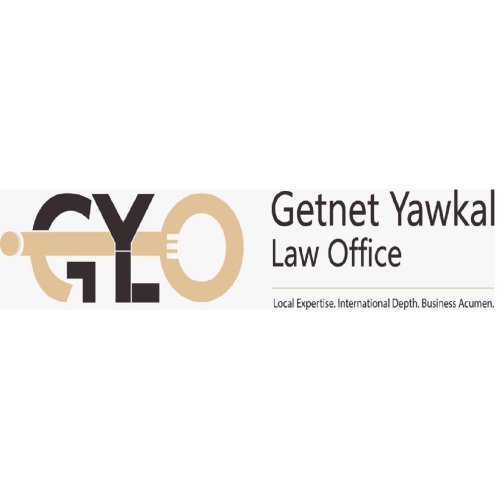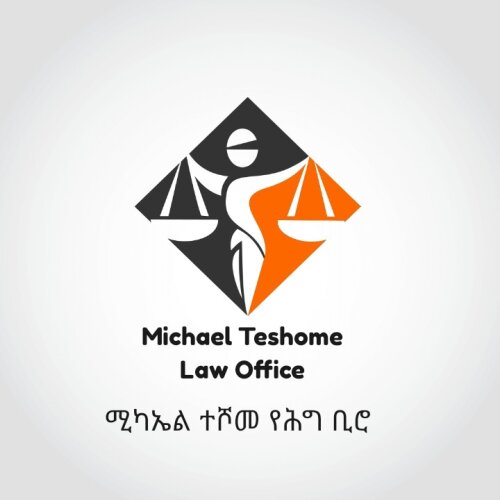Best International Trade Law Lawyers in Ethiopia
Share your needs with us, get contacted by law firms.
Free. Takes 2 min.
Or refine your search by selecting a city:
List of the best lawyers in Ethiopia
About International Trade Law in Ethiopia
International Trade Law in Ethiopia governs the complex legal frameworks that facilitate and regulate trade across international borders. It encompasses a variety of legal areas, including customs regulations, trade tariffs, import/export restrictions, and agreements between different countries. Ethiopia, being one of the fastest-growing economies in Africa, adheres to both domestic legislation and international commitments to foster a favorable trade environment.
The legal landscape is influenced by Ethiopia's participation in international trade organizations such as the World Trade Organization (WTO) and regional agreements like the African Continental Free Trade Area (AfCFTA). These frameworks guide Ethiopia in implementing international standards for trade practices and dispute resolution mechanisms.
Why You May Need a Lawyer
Engaging in international trade can be fraught with legal complexities and challenges that may necessitate legal assistance. Common situations where you may require a lawyer include:
- Negotiating trade agreements or contracts to ensure compliance with international and Ethiopian laws.
- Resolving disputes arising from international transactions or cross-border contracts.
- Navigating customs regulations and ensuring compliance with import/export controls.
- Addressing issues related to trade tariffs, duties, and taxation of imported goods.
- Handling intellectual property rights in the context of international trade.
- Understanding and utilizing trade-related government incentives or programs.
Local Laws Overview
Understanding the local laws relevant to international trade in Ethiopia is crucial for legal compliance and successful business operations. Key aspects include:
- The Ethiopian Customs Proclamation: Governs customs procedures and duties for imported/exported goods.
- Investment Proclamation: Outlines the legal rights and obligations of foreign investors, which can impact trade.
- The Competition and Consumer Protection Proclamation: Maintains fair trading practices and protects consumer rights.
- Tax Laws: Regulate the taxation of international transactions and trade-related operations.
- Intellectual Property Rights Laws: Provide protection for inventions, brands, and other intellectual properties in the trade context.
Frequently Asked Questions
What is the process for importing goods into Ethiopia?
To import goods into Ethiopia, you must adhere to customs regulations, procure necessary permits, and comply with import tariffs and taxation. It's essential to consult with a lawyer to navigate specific legal requirements and documentation.
How can I resolve a trade dispute with an international partner?
Resolving trade disputes may involve negotiation, arbitration, or litigation. Engaging a lawyer skilled in international trade law can help mediate conflicts and manage legal proceedings effectively.
Are there any incentives for foreign investors in Ethiopia?
Yes, Ethiopia offers various incentives for foreign investments, including tax holidays, duty exemptions, and investment protection under its Investment Proclamation.
How are customs duties calculated in Ethiopia?
Customs duties are calculated based on the Harmonized System (HS) classification of goods, the customs value, and applicable tariff rates. Consulting with a customs expert or lawyer can assist in accurate duty assessments.
What should I consider when drafting an international trade contract?
Consider terms related to delivery, payment, risk transfer, dispute resolution, and compliance with local and international regulations. Legal expertise is crucial to ensure enforceability and compliance.
How does Ethiopia regulate intellectual property rights in trade?
Ethiopia has laws to protect intellectual property rights, including patents, trademarks, and copyrights. These laws are designed to safeguard innovations and brand identities in the trade sector.
What is the role of the Ethiopian Trade Ministry?
The Ministry of Trade facilitates international trade by implementing policies, regulating import/export activities, and engaging in trade negotiations and agreements to promote market access.
Is Ethiopia a member of any international trade organizations?
Yes, Ethiopia is a member of the World Trade Organization (WTO) and the Common Market for Eastern and Southern Africa (COMESA), impacting its trade policies and practices.
What are trade tariffs, and how do they affect businesses?
Trade tariffs are taxes imposed on imported goods and affect business costs and pricing strategies. Understanding applicable tariffs is critical for cost management and compliance.
How can I stay updated with changes in trade regulations?
Subscribing to updates from government trade agencies or consulting with a legal expert can help you stay informed about regulatory changes affecting international trade.
Additional Resources
For more information, you can consult the following resources:
- The Ministry of Trade and Industry of Ethiopia: Provides updates and regulations on trade policies.
- The Ethiopian Revenues and Customs Authority: Offers guidance on customs regulations and duties.
- Ethiopian Investment Commission: Offers insights into investment opportunities and incentives.
- World Trade Organization website: For information on international trade norms and Ethiopia's commitments.
Next Steps
If you need legal assistance in International Trade Law in Ethiopia, the following steps can guide you:
- Identify the specific nature of your trade-related legal issue or inquiry.
- Research and consult with experienced legal practitioners specializing in international trade law.
- Prepare relevant documentation and information to facilitate legal consultations.
- Discuss with your lawyer the possible legal strategies and solutions tailored to your needs.
- Stay informed about legal developments and maintain compliance with relevant regulations.
By taking these steps, you can ensure that you are well-prepared to navigate the legal complexities of international trade in Ethiopia effectively.
Lawzana helps you find the best lawyers and law firms in Ethiopia through a curated and pre-screened list of qualified legal professionals. Our platform offers rankings and detailed profiles of attorneys and law firms, allowing you to compare based on practice areas, including International Trade Law, experience, and client feedback.
Each profile includes a description of the firm's areas of practice, client reviews, team members and partners, year of establishment, spoken languages, office locations, contact information, social media presence, and any published articles or resources. Most firms on our platform speak English and are experienced in both local and international legal matters.
Get a quote from top-rated law firms in Ethiopia — quickly, securely, and without unnecessary hassle.
Disclaimer:
The information provided on this page is for general informational purposes only and does not constitute legal advice. While we strive to ensure the accuracy and relevance of the content, legal information may change over time, and interpretations of the law can vary. You should always consult with a qualified legal professional for advice specific to your situation.
We disclaim all liability for actions taken or not taken based on the content of this page. If you believe any information is incorrect or outdated, please contact us, and we will review and update it where appropriate.
Browse international trade law law firms by city in Ethiopia
Refine your search by selecting a city.

















